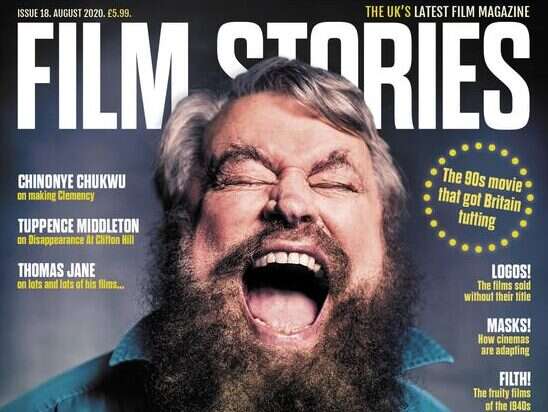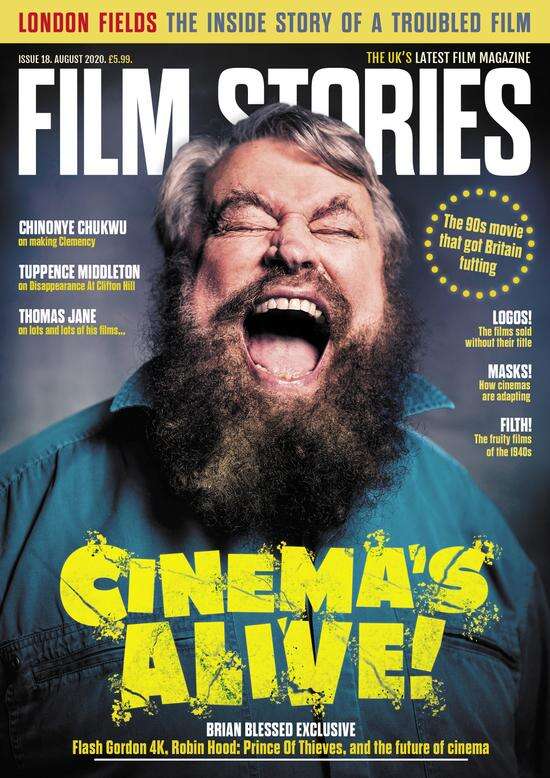
The founder of an independent film magazine is celebrating after more than 500 people raised £32,000 to keep the title going until the end of 2021 despite the Covid-19 crisis putting it back to “square one”.
Simon Brew launched the monthly Film Stories in 2018 – and its sister title Film Stories Junior a year later – after tapping into an appetite for a magazine focused primarily on British and independent films with a successful Kickstarter crowdfunding campaign for each.
But he was forced to appeal for reader revenue again after a hard six months which saw big movie releases delayed, advertising income dry up almost entirely in just two weeks and newsstand sales disappear.
Brew, who previously founded the Den of Geek website, told Press Gazette: “It was already the hardest thing I’d ever done, just getting two magazines off the ground myself with no publishing company behind me. That had been very taxing. I had done challenging things before but it was just intense.
“And then just at the point I was about to break even at the start of the year… it just went back to square one within two weeks.”
He added that sales overall remained “okay” but that was only subscriptions, without retail from WH Smith. Newsstand sales began to bounce back with the latest Brian Blessed cover but “it’s still just a way away from where it needs to be now”, he said.
But the venture has seemingly showed demand for a carefully curated print product with more than £32,000 – Brew’s target for the minimum amount he needed – raised in under three weeks via Kickstarter.

Before launching the Kickstarter, Brew had begun to accept that the pandemic “probably” meant it was the end of the road for his titles, although he was building a strong subscription base.
He had tried to continue production but was forced to pause twice.
The first time was the start of the crisis when the next James Bond film which was due to feature on the cover was delayed as the magazine went to print.
After three issues, the magazine paused again when Brew got to the stage “where every issue I was going to put out was going to lose me money”. He was insistent he could not go under without being able to pay back subscribers.
As well as continuing the magazine, Brew had to continue freelancing throughout, which posed its own problems as some companies cut back their freelance budgets.
But he said he was keen to try and find “firmer footing” as he believes print is “worth fighting for”.
“There’s a real permanence to print and I do think there’s something to holding something tangible in your hand,” he said.
“I think the craft of an article in print is different to the craft of an article online and I think there are some things that lend themselves to paper and some things that lend themselves to a computer screen. I don’t think it’s one size fits all.
“I love magazines, I love holding in my hands a curated magazine… giving me a package of interesting stuff, some of which I know about and some of which I don’t. That’s always been special to me.”
The Film Stories brand started with a podcast and was also running live events before coronavirus hit, and Brew’s assessment is “if you’re reliant on one or two streams of income you’re pretty much doomed”.
Launching into a critique of the relationship between platforms and publishers, he said: “We’re in an era when a committee meeting at Google headquarters can affect your search ranking of your website and take half your traffic away overnight and you just won’t know. Thankfully that’s not happened to me but I know that’s happened to others.
“One shift of the Facebook algorithm and there’s another tranche of traffic over which you have no control. We’ve put publishing in the hands of some very powerful third-party companies, the Googles and the Facebooks, who I would suggest are not that interested in it.”
Brew also questioned whether retailers could do more to support smaller magazine publishers by reducing the barrier to entry which can mean titles paying a four-figure sum to be on the newsstand. He suggested changing the percentage terms as an option to try instead.
Ultimately, what Brew wants to find again with the Kickstarter campaign is stability – and the opportunity to keep paying his freelance contributors (no-one writes for free, except him).
“I think what we’re doing’s actually important – offering opportunities that weren’t there,” he said.
“I don’t know how people break into paid work in this industry anymore but… big companies abuse their reach to ask people to pay for free because of the exposure they can offer and I think that’s a disgrace and I’m trying to change that in my small way.”
Email pged@pressgazette.co.uk to point out mistakes, provide story tips or send in a letter for publication on our "Letters Page" blog

